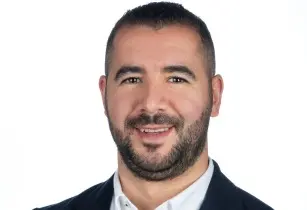Tarak Lechkab, Area sales manager Africa at Desmet, a leading global provider of custom-engineered plants and equipment for the food, feed and biofuels industries, speaks to African Farming on the reliable and innovation technologies the company is delivering to the agricultural sector
How productive has 2022 been for you?
Tarak Lechkab: It was a great year, one of the best of the last five, mainly driven by our refining and fat modification technologies. For vegetable oil refineries, our Continuous Deodorisation Qualistock+ continue to provide a competitive advantage to our customers. This all-in-one deodoriser with reduced footprint, robust design with low leakage risk, high heat recovery, low residual FFA at approximately 0.2% with post-stripper, is a cutting-edge technology. Moreover, our bleaching process – continuous dry pre-treatment with bleaching – allows an accurate dosage of bleaching earth, no mechanical agitation in bleachers and full automation. In fat modification, to change the properties of refined palm oil, our IconFrac continuous fractionation technology is designed in accordance with the product specifications desired by our clients. Our continuous fractionation process, easy to operate and fully automated, can achieve 30 to 40% energy savings compare to the batch technology.
What are your goals for 2023?
Tarak: What we do best: staying reliable, remaining close to our customers/partners, creating new trustworthy relationships and gaining more market share. We are always innovating, as you have to if you want to be delivering premium quality in your field.
Can you highlight the current market trends for the food, feed and biofuel industries?
Tarak: We are expecting a market growth in Africa, driven by (on one hand) a switch to healthier alternatives influenced by WHO’s guidelines on eliminating trans fat from processed food. On the other hand, the rising consumptions of bakery, confectionary and processed food is driving the market. This high consumption of processed food is mainly due to the growing population, but also to convenience, long shelf life and time-saving. Thus, it boosts the demand for fats and vegetable oils in Africa. Moreover, most countries have this willingness to increase their food sovereignty. Considering that 60% of the world’s uncultivated arable land is in Africa (according to the World Economic Forum), the potential is there. Even if in the recent years, the progress has been quite impressive. According to the World Economic Forum, while agricultural production is up 160% over the past 30 years, Africa will have a population of 2bn by 2050. Continued agricultural development will be central to feed all these people.
Do you have any plans of expanding your market reach to smallholder farmers in Africa?
Tarak: Some of our partners are smallholder farmers and we help them by providing accurate plans according to their needs. We support them from the beginning to the end and even after with our customer services. Moreover, most of our partners work exclusively with the local farmer. It is crucial to take in consideration the smallholder farmer knowing that according to UN’s Food and Agricultural Organisation they contribute up to 80% of sub-Saharan food supply and Africa has an estimated 33mn smallholder farms. In Africa, there are some initiatives by pan-African groups like the African Development Bank in order to enable them. These centre around education, infrastructure, water management and financing through public private initiatives. In Nigeria, for instance, The Anchor Borrower’s Programme provides loans to small holder farmers to boost agricultural production and reduce food importing bills.
What are your plans for a climatesmart and sustainable future?
Tarak: At Desmet, we recognise that our business activities have impacts on the environment and on climate change. We are therefore dedicated in reducing the carbon footprint of our technologies and contributing towards the Paris Agreement. In the last decade, our research and development centre has come up with a few innovations that reduce the consumption of chemicals and energy, such as nano technology or our ice condensing vacuum system for Refining. Moreover, our technologies are designed to guarantee good plant maintenance and supply according to the most recent standards which are key to maintain low energy consumption, heat losses and leaks during the entire lifespan of our customer industrial plants.
If you are interested in connecting with the Desmet team, please get in touch with Gaston de Liedekerke, Bruno de Jaeger and Tarak Lechkab via the email:





